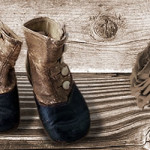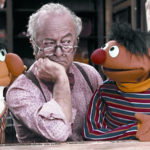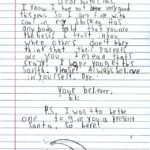
Housel’s newsletter this week is fascinating. Think about it next time you are “up against a wall” – wanting to make a wise decision.
A FEW STORIES ABOUT BIG DECISIONS
By Morgan Housel
In 1964, Warren Buffett owned shares in an old industry company with fading prospects.
The company’s CEO viewed Buffett’s purchase as a threat to his job security, and offered to buy the shares back at a premium. Buffett was eager to sell, tired of watching the business struggle.
The two struck a deal: The company would buy all of Buffett’s stock at $11 1/2 per share.
Buffett received a letter shortly after formalizing the deal. The company would still buy all of his stock, but at $11 3/8 per share.
“It really burned me up,” Buffett recalled. “You know, this guy was trying to chisel an eighth of a point from having, in effect, shaken my hand saying this was the deal.”
Buffett confronted the CEO, who argued there was never a deal to begin with. That made him even more incensed.
So rather than selling, Buffett began buying as much of the stock as he could.
He eventually purchased more than a third of the company.
Biographer Alice Schroeder writes that, above all, Buffett’s motivation for buying more of the company’s stock was to stick it to the CEO who tried to screw him out of twelve cents per share.
The company – Berkshire Hathaway – became Buffett’s masterpiece.
A similar story: In 1955, recent college graduate Morris Chang was offered two jobs: One at Ford for a salary of $479 a month, and one at electrical company Sylvania for $480 a month.
Ford seemed like the better opportunity, but Chang asked the recruiters to match his Sylvania offer – a mere $1 a month more.
Ford declined. So Chang took the job at Sylvania, where he learned about – and became an expert in – the growing field of transistors and microchips.
Chang eventually founded Taiwan Semiconductor, which today is worth almost half a trillion dollars and produces 60% of the world’s chips.
Henry Ford knew the automobile would change the world. The rest of the world wasn’t so sure. In the early 1900s, cars looked like noisy toys for rich people.
But toys are fun, so the one thing the public was crazy about was car racing.
Ford had no interest in race cars – his vision was to build a cheap, quality car for the masses.
But knowing that he needed to win over both investors and the public, he built the best race car in the world, and in 1902 it beat the reigning champion.
“That was my first race, and it brought advertising of the only kind that people cared to read,” Ford wrote. He became known nationwide.
The attention was enough to raise money from investors, and Ford Motor Company was formed eight months later.
Everything is sales.
Actress Gloria Swanson turned down a $1 million movie contract in 1927.
The studio was stunned, and asked why she balked.
“I would have been the second or third person in movie history to sign a million-dollar contract, but I was the very first to turn one down,” she said.
That remark made headlines and helped her become even more famous, which, I assume, was the point.
It’s the most extreme example of the career advice, “Don’t try to be the best. Be the only.”
As the late author Christopher Hitchens battled esophageal cancer, the brutal side effects of chemotherapy seemed like, as Dr. Peter Attia wrote, “fair trade for a few more years of useful life.”
But as Hitchens neared the end, he wrote:
I lay for days on end, trying in vain to postpone the moment when I would have to swallow. Every time I did swallow, a hellish tide of pain would flow up my throat, culminating in what felt like a mule kick in the small of my back. … And then I had an unprompted rogue thought: If I had been told about all this in advance, would I have opted for the treatment?
JFK and Jackie Kennedy didn’t have a great relationship. In 1955, two years after their marriage, Jack told his father, Joe Kennedy, he wanted a divorce.
Joe responded: “You’re out of your mind. You’re going to be president someday. This would ruin everything. Divorce is impossible.”
Jack reiterated that he and Jackie weren’t happy.
His father shot back: “Can’t you get it into your head that it’s not important what you really are? The only important thing is what people think you are!”
The marriage endured.
Everything is sales.
Sugar, milk, and eggs were all rationed during World War II. Many food companies adapted to use different, often lower-quality, ingredients to get by.
See’s Candy was so obsessed with quality that it refused to lower its standards. One holiday season it closed down and put signs in its store that read, “Sold out. Buy war bonds for Christmas.”
America’s decision to invade Northern Africa in November 1942 was extremely unpopular, even among President Roosevelt’s closest advisors. By almost every account, the troops weren’t ready, the planning was rushed, and the missions too ambitious. The top generals saw no downside to waiting a few more months. Dwight Eisenhower, then a general, predicted that Roosevelt’s hasty order to invade would become “the blackest day in history.”
The invasion worked. But looking back after the war, the president’s advisors wondered why he was in such a hurry.
One explanation was that the American people were antsy for something – anything – to happen after Pearl Harbor and Germany’s declaration of war. Roosevelt’s own son wrote him a letter saying he and his fellow soldiers were sitting around and “not having any fun … just waiting our turn.”
Scratching those itches may have superseded military strategy.
George Marshall, then Army chief of staff, said after the war: “The leader in a democracy has to keep the people entertained. That may sound like the wrong word, but it conveys the thought.” Most decisions aren’t made on a spreadsheet, where you just add up the numbers and a rational answer pops out. There’s a human element that’s hard to quantify, hard to explain, and can seem detached from the original goal, yet carries the most influence.





























